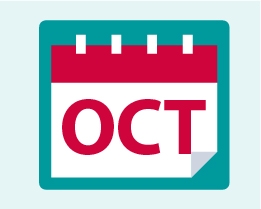‘Business plans don’t work’ is the common misconception of many business owners.
It’s a statement that as a business consultant, I’m often faced with. When discussing whether a business needs support, ‘business plans don’t work’ is a frequent objection. However when we explore why, this misconception has often been brought about by one of two things:
1. Plan created to secure funding
In many cases, business plans are created in order to secure funding from a bank. The plans contain whatever is needed to get the cash across the line and often bare little resemblance to the actual business. With funding in place, the business plan has done its job and is filed away. It’s little surprise in that case, if the business doesn’t grow as a result.
2. Lack of action plan
In some instances, business plans are created with a genuine desire for business growth. Unfortunately, the reality is often just an idealised view of the perfect business. It doesn’t factor in actual resource and business structure. Critically, what many business plans lack is an action plan. Without which, it’s unlikely to succeed.
So when I hear the statement ‘business plans don’t work’, my first question is always ‘did you follow an action plan?’. The old adage is true:
If you fail to plan, you plan to fail.
What your business plan should include
Putting together a business plan shouldn’t be difficult. Simply follow this step by step approach:
Goals
What are your personal goals? Therefore what does the business need to achieve to deliver on these goals? Rome wasn’t built in a day, so break targets down into manageable chunks.
Objectives
Set objectives for the business and remember to ensure they are SMART ie:
Specific
Measurable
Actionable
Relevant
Time-bound
Strategy
Broadly, how do you plan to achieve the objectives you’ve defined? For example, if one objective is to increase sales, the strategy might be to start selling in new markets (perhaps online or overseas).
Action plan

With strategies outlined, you’ll need that critical action plan. Decide and document a list of specific actions.
Looking back at the example above, let’s say one strategy is to start selling online. Actions for this may include things like:
Build e-commerce website
Research shipping fees
Review pricing
Review packaging options
With a list in place, add to it who will do what and by when. Day to day service delivery can often get in the way of delivering on an action plan, so be realistic when deciding on deadlines.
Monitor
OK so your action plan is key, but only so long as you do action it! It sounds logical but you’d be surprised how many action plans are written but not followed. There are so many distractions as a business owner and I understand how easy it is to lose sight.
So, how to ensure this doesn’t happen? Put in a mechanism to establish some accountability. This might be via a regular management team meeting, or if you’re a smaller business it could be a regular meeting with your business coach. Get the time allocated in your diary each month to check everything is on track.
When you follow these steps and implement your action plan, you might just end up where you want to be! It’s just like getting in the car. Without knowing the destination, or without a pre-planned route you’re less likely to have a smooth trip, arrive on time or even get where you want to go at all.
To find out when you should be completing your annual planning, read on to my next blog here.
As ever, if you need any help building and implementing your action plan, why not contact me for a free new business review? I’ll spend two hours with you giving you professional coaching and will leave you with actions for immediate implementation.
Doug D’Aubrey.
